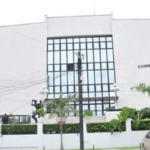
Obviously, because I am the unauthorised biographer of Ayinla Omowura, the musical enfant terrible of Yorubaland of the 1970s, I have been inundated by requests to lend a voice to an ongoing debate which has spiralled in Omowura’s hometown of Abeokuta, the capital of Ogun State. The debate stemmed from a claim by a man who said that, for four years, he investigated the “mysterious” death of the Yoruba Apala music lord and “unearthed startling revelations” therefrom. Rather than the popular and legal affirmation that Omowura was murdered in a barroom brawl in May 1980 in Abeokuta by his erstwhile manager, Fatai Baiyewumi, the “investigation” by the man claimed that Omowura died as a result of a metaphysical ring prepared for him by a man called Ilelabewe Adisa.
The man said that in the course of his four-year investigation, during which he had to interview the said Ilelabewe and some members of the Omowura family, as he dug, the orthodox claim of Ayinla’s murder by Baiyewumi didn’t add up, leaving him to believe the claim that herbalist Ilelabewe was actually the architect of Ayinla’s death. The lead towards this herbalist, said the “investigator’” was provided by Kabiru, one of Ayinla’s sons, given birth to after the musician’s murder, who claimed that rather than Baiyewumi, a ring the musician wore on his finger, led to his death.
In the explanation of both Ilelabewe and Kabiru, the musician had been given a ring soaked in a magical potion which, if worn and used to hit an adversary, would lead to the adversary’s fall. The antidote lay in the ring wearer’s leg which, once they struck the unconscious adversary with it, they would regain their consciousness. Tragedy, claimed the duo, however struck when, in the final showdown between Ayinla and his manager in Ago Ika on May 6, 1980, the musician allegedly unknowingly hit his chest with the ring. It led to his fall and death. In one of the videos released by the “investigator,” Ilelabewe remorselessly said in Yoruba, “I killed Ayinla Omowura.”
Immediately after this widespread claim which the family felt cast aspersion on their departed father and grandfather musician, they all came out to denounce Kabiru and the said Ilelabewe. Ayinla’s first child, Kuburat who he variously serenaded in his albums, attaching her alias, “Kubure” to himself as the suffix – “Baba Kubure” – literally disowned Kabiru. She even cheekily almost disowned his paternity with the Yoruba saying that a home that is at peace will lose this precious commodity the moment its bastard offspring comes of age.
In my biography of the musician with the title Ayinla Omowura: Life And Times of an Apala Legend (2020) I had a chapter which I entitled “The Day Oloburo was murdered”. It articulates my research findings on the events leading to, the death and post-death matters that concerned the musician. I interviewed consequential informants and living witnesses to his death which ranged from his surviving wives, children, two children of his spiritual advisor, Agbejapa Oba, one of whom saw Ayinla on the said morning of his death; his lead drummer who is late now (Adewole Oniluola) and Alhaji Ayinla Kollington, among many others. I also affixed an appendix to the book which was a verbatim Abeokuta High Court judgment which sentenced Baiyewumi to death by hanging on September 30, 1980.
Charged with murder contrary to s. 25(2) of the Criminal Code, Baiyewumi the accused (as the criminal justice system knew such people then), said the court, struck Ayinla with a beer jug on the head. Baiyewumi, through his counsel, Chief Sotayo, denied the charge but claimed that, upon seizing him (Baiyewumi) to demand the key of the motorcycle Omowura gave to him, “the deceased had begun to shake all over and then collapsed.” Upon autopsy, the cause of death, as given by Dr Majekodunmi, who conducted an autopsy on the late musician, was: “cerebral shock resulting from a fracture of the skull associated with contusion and a large intercranial haemorrhage, consistent with the deceased having been struck in the head with a heavy object.” The doctor also told the court that there was noticed on the deceased’s head “a comminuted depressed fracture about 2 ins. X 1 ¼ ins. in the left temporal region.” He even told the court that the injury noticed on the head of the deceased “are associated with being hit on the head with a heavy object… could not have been self-inflicted.” The court agreed.
Under cross-examination, Dr. Majekodunmi was asked whether the vomiting that Omowura suffered on the spot immediately the heavy object hit him could have led to suffocation and death on its own. The doctor admitted the claim by the defence that Omowura was probably suffering from hypertension and that the sickness was what gripped him and led to his death. However, it remained in the realm of probability, as the only factual, scientific cause of his death was the heavy object that hit him on the left side of his head.
The missing link which many analysts of Ayinla’s death have not reckoned with but which I stumbled upon in the course of my research was that, either immediately he slumped in Ago-Ika area of Abeokuta, outside the beer parlour of one Sikiratu Adekola, or after being taken first to Akin-Olugbade Hospital, but certainly before he was taken to the last point of call – Abeokuta General Hospital – Ayinla’s almost lifeless body was taken to his Itoko home in Abeokuta. Why, is difficult to reason out. However, when it is considered that the musician was dreaded for his heavy steep in metaphysics, it may be clear that he was probably taken home from the scene of attack to administer unorthodox revival intervention on him.
One of his wives, Kehinde, who claimed he saw his body in a car, brought to his home said in an interview during the course of my research that, “Yes, it is true that they brought Alhaji (Omowura) home to Itoko. When they brought him home, he was still breathing. He was in the car. His brother, Alhaji Dauda, sat at one end in the back seat of the car. Alhaji’s body was in the middle. Someone else who I cannot remember now, sat n the other edge of the car. They held him and were shouting, ‘Alhaji! Alhaji!’ His clothes had been pulled off from his body. You could see his heart running up and down (apparently gasping for breath). His tongue had jutted out. Some people started shouting that th house they brought him was not the best thing for them to do; that they ought to have taken him to the hospital. So they heeded this call and took him to Dr. Maje(kodunmi’s) hospital.”
Indeed, the theory that Omowura’s death was more metaphysical than physical gained traction in Abeokuta immediately after his death. When I spoke to his lead drummer, Oniluola, he trod the same path. He said he had always wondered what the musician was doing with several rings on his hands and that he probably died from one of them which he claimed must never touch human blood. Omowura’s wife with the nickname, Iya Agba, also told me that he could not in good conscience say that Baiyewumi killed the musician.
In a Yorubaland of the time that was highly embroiled in metaphysics, where it was believed that nothing in the physical happens without a metaphysical underlining, this reading of the death of such a controversial man was expected. However, facts do not support the claims that the musician died as a result of Ilelabewe’s ring. The law also sniggers at the claim. Kabiru has always had very outlandish views about his father that were inconsistent with reality, something in the realm of the nightmarish. He manifested same when being interviewed for the biography of his father.



























